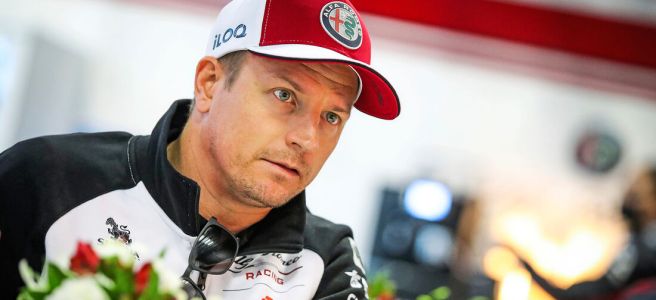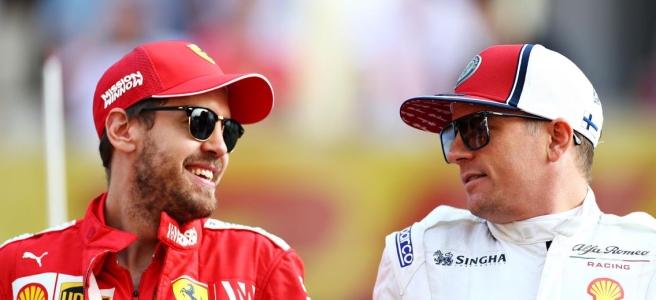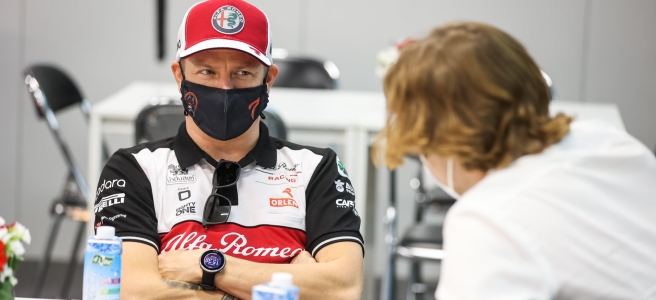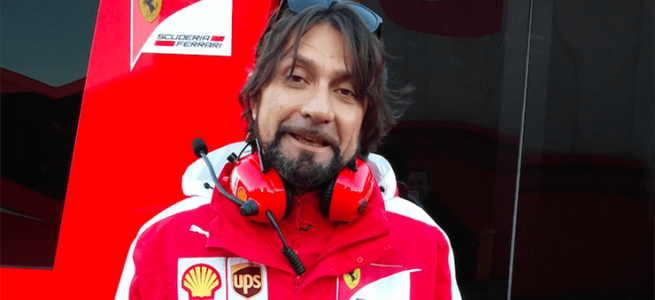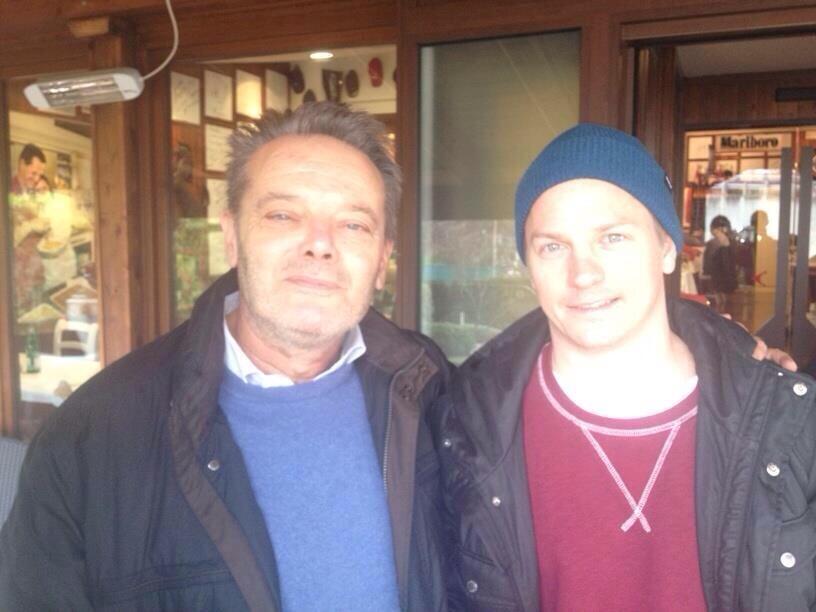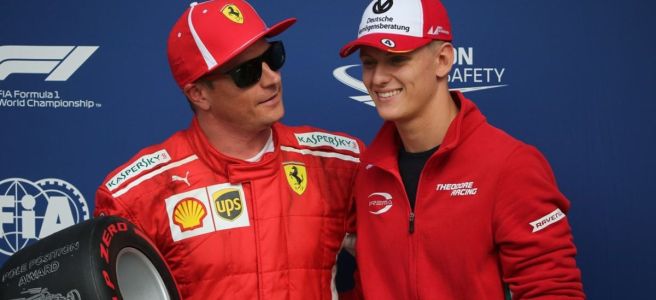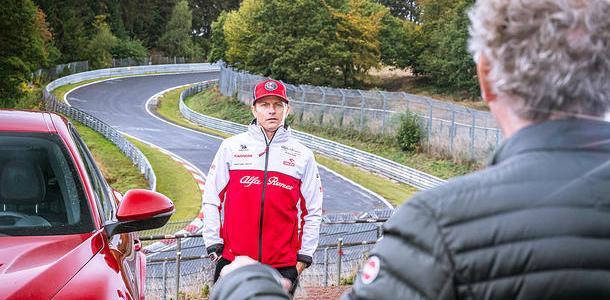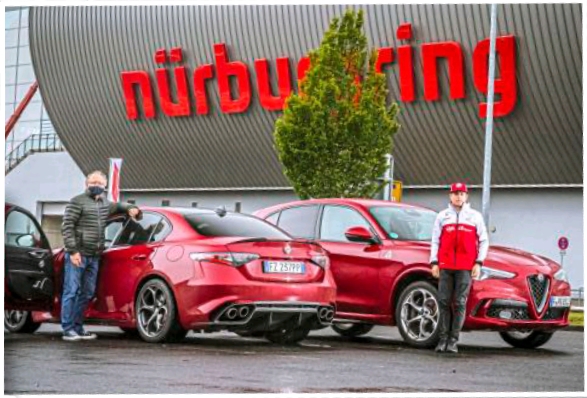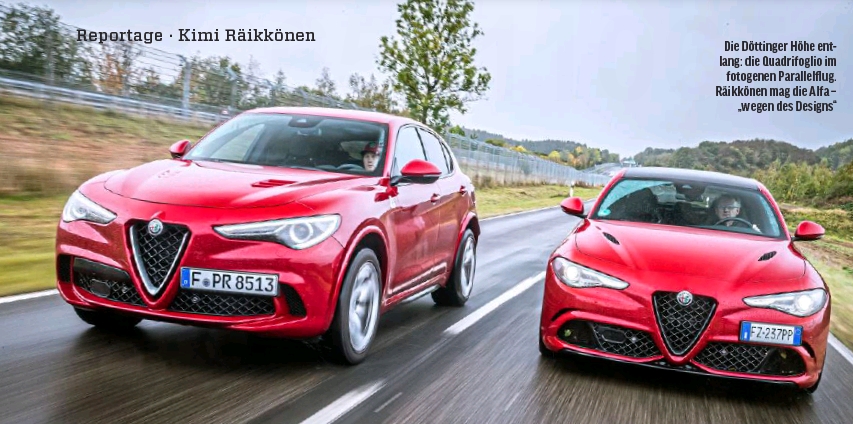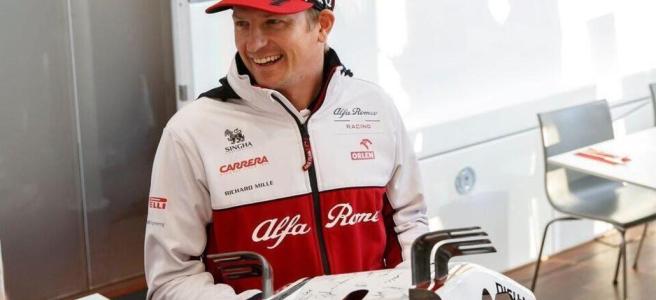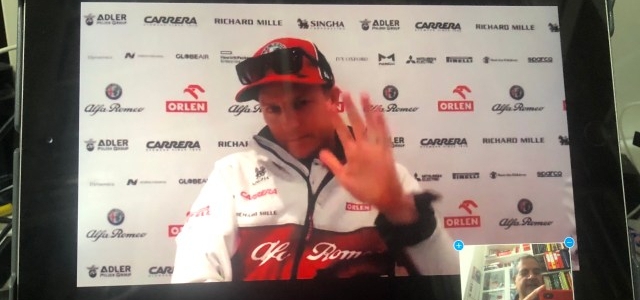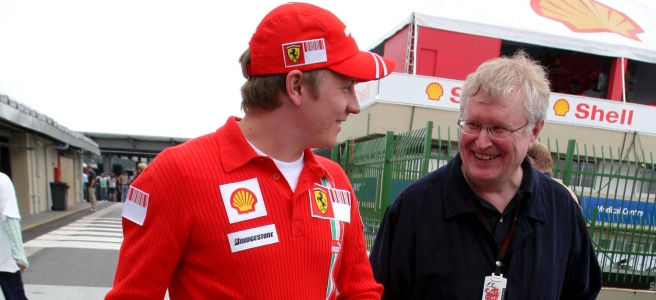350 GP, 1 world title and a well-deserved retirement
source: AutoHebdo Magazine, 22. December 2021
A bit misanthropic, 100% natural, the Finnish hero takes a bow after 19 seasons with a world title in 2007.
They say you’re an ace at DIY, that you even fixed the toilets at the Scuderia. Do you have a lot of work to do at home?
You seem to be surprised. Do you call the plumber every time you have a little problem with the toilet? No. Well, neither do I! There is nothing unusual about it. I’ve always been able to do a lot of things with my hands and when I don’t know how to do it, I learn. At home, I do a little bit of everything, including the car. Besides, you’re right, I have a lot of things to do. I’m going to be very busy in the next few weeks. (Laughs) Really, what’s not normal is not doing all these little every day things. I don’t see why I should pay someone to unclog a sink, change a wheel, etc. A lot of things resist me, but I’m stubborn. I try, and I try again!
Is Robin, your six-year-old son, like you?
I let him try. It’s the normal process of learning. You learn a lot in school, but you also learn a lot on your own by trying and trying again.
Your school of life was the paddock. Is ending your career a leap into the unknown?
I don’t have a plan. I didn’t want to have one. I will see what the future holds for me… I have always given much more importance to my life outside the paddock than inside. F1 has never been the most important part of my life. Everyone is very sympathetic to me. They ask me what I’m going to do. I’m just going to live. I’m not going to miss traveling…
Are you quitting F1 or motorsport? Could we see you again in the cockpit of a prototype sports car or in the WRC car?
I don’t know! If something interesting comes up, why not. I’m going to do motocross, for sure. Maybe Robin will want to race, in which case I’ll be there to help him. Now he likes these things, but he’s young and at that age you change your mind a lot. I don’t mind if it becomes his passion, it will be easier for me to manage. With my wife Minttu, we will support our two children (Robin and Rianna, 6 and 4 years old) in all their projects. If they want to be dancers, I don’t mind at all, as long as they enjoy what they do. Whatever they choose will always be better than hanging out in the corner, or sitting at home playing video games.
Is it a relief that it’s ending?
I’m very happy. I enjoyed the racing, I still enjoy it, but the rest of it became too much. I’ll miss the race, but I won’t miss the other stuff. My thing was to jump in the car and have fun. As time went on, it became less fun! Everything else took over eventually.
You have lived most of your career without the social networks and netflix that have revolutionized the paddock. Is that a relief or regret?
I don’t know. The world has changed a lot in twenty years, and F1 has just followed the trend. We were much less present in the media but much more on the track. The race weekends were exciting, but the tests between each Grand Prix were much less so. Doing laps from 9am to 6pm with an hour break… It wasn’t like a factory, but it wasn’t fun either. We had less time for ourselves, but the feeling of freedom was actually perhaps more important… I say that, but maybe it’s age that makes me talk.
With whom will you stay in touch?
With Antonio and Sebastian of course! Seb and I won’t be seeing each other as much, but I have no doubt that we’ll see each other from time to time. It’s been a while since we played badminton against each other, and it would be nice to do it again. And since I’ll have time to train, it will be even harder for him to beat me.
Did you enjoy your time at Ferrari with him (2015-2018)?
Yes, it was fun. We knew each other from before, which made things easier. It’s the same with Antonio who became a close friend. In fact, I never had any problems with my teammates. It has always gone pretty well.
You never tried to be particularly friendly with the fans. Yet your popularity has never dropped. Is indifference the secret to being popular?
I wouldn’t say I’m indifferent, just that I am who I am, with my faults and qualities. I didn’t try to be someone else. Some people do, but it never lasts very long. After two or three years, their true nature returns. I simply live my life. Maybe that’s where it comes from. I’ve always said I don’t care what people think. I’ve always been straightforward. I was never there to please. Some people like you, some people don’t. You like some people and not others. Having raced in F1 doesn’t make you any different from anyone else.
In the 70’s or 80’s, F1 drivers didn’t say no to a cigarette or a good beer after a qualifying or a race… During your career, did you feel closer to them than to the “Netflix generation” you are leaving behind? Is it a certain idea of F1 that leaves with you?
I don’t know, and I don’t really care to be honest. I’ve never been shy about a beer, I haven’t always refused a cigarette, but I don’t feel any pride or embarrassment about it. I didn’t grow up in the same world as this young generation coming into F1. I think it must be the same for you, whom I have often crossed paths with since my debut in 2001 at Sauber. (Laughs)
Like you, I have known the fathers and I see the sons arriving… Have you suddenly felt the weight of the years on your shoulders?
It’s true, I raced against Michael and was there when Mick started. I raced against Jos and saw Max become world champion, but I never thought about the time passing. I don’t stop because I feel old, but because I’m fed up!
Did you test the 2022 single-seater in the simulator, just to see how it would look like?
Yes, but it’s impossible to draw any conclusions. As long as these cars are not on the track, we can say anything and its opposite. I just hope that they will be a good thing for F1. I will see it in front of my TV!
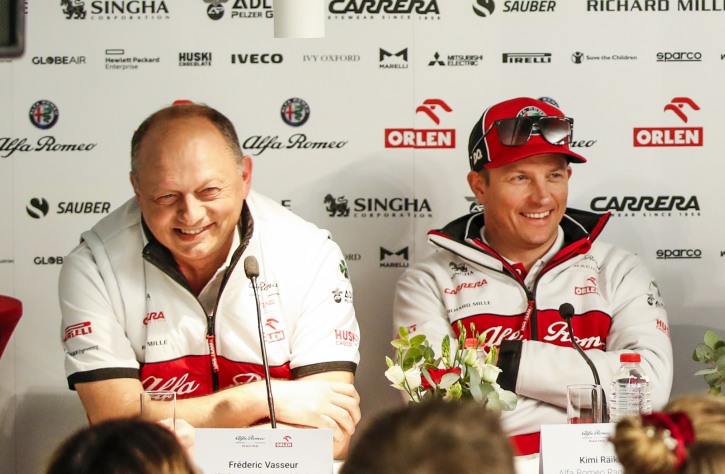
Frédéric Vasseur, Alfa Romeo Team Principal
Kimi’s arrival at Alfa Romeo (2019) was an opportunity for us, which we fully exploited in the first season, less so in the following two, which were made more complicated for reasons specific to the team. This never stopped him from fighting, with the deep-rooted racer’s soul that he has always had. I will always remember Kimi as an exceptional driver. His behaviour was different in the over-policed world of the paddock. This is probably what the fans perceived and liked, especially in Asia where he has an exceptional aura. He is one of the most recognized sportsmen there. He owes it to the vintage image he has of himself, far from the right-thinking and political correctness of the sport. He has never shied away from making a few deviations, without affecting his lifestyle and his thirst for performance. He knows how to let go, and that is part of his balance. He will have to create a new one from now on. For the moment, he is looking for a break. The transition between the status of F1 driver highly mediatized and retired will not be easy. Not easy for him and Minttu, his wife. I think he will soon have to do something. (Laughs) What remains is a career of almost twenty years, which will be difficult to match in terms of richness and longevity!
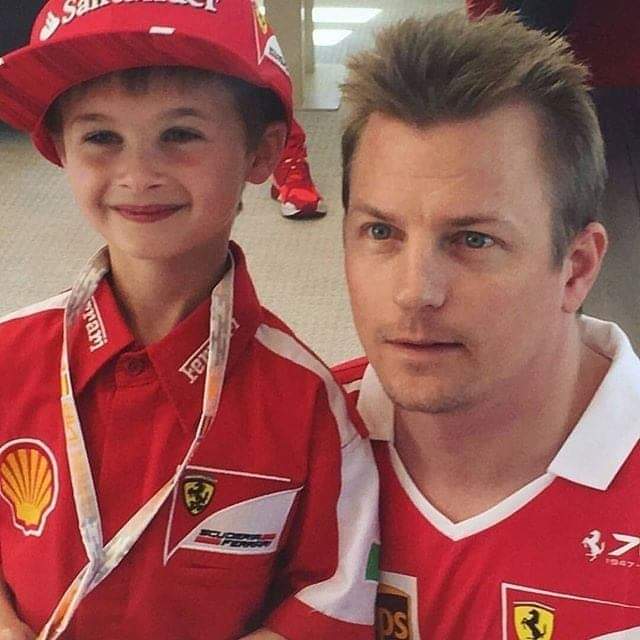
ODE TO KIMI
Kimi, as you finish your last season in Formula 1, I must say how important you have been to me. If I became passionate about this sport, it is because of you. I was not even born when you became world champion in 2007, but my mother told me about your achievements in the 2000s. She also explained to me that the blue helmet in Abu Dhabi was the one you wore at your first Grand Prix in 2001 in Melbourne, where there was less safety I guess, and yet you had a long career. To drive a F1 car at more than 40 years old, that requires a lot of courage. To find out more about you, I watch a lot of YouTube videos on my phone. The first memory I have of you is when you came back to Ferrari in 2014. I loved the way you drove, you were very clean in the corners and I thought you were respectful to the other drivers. I attended my first Grand Prix in Barcelona in 2017 I was all excited about you getting on the podium, but at the first corner Valtteri Bottas clipped you. So I cried and cried. I didn’t know about it, but a cameraman had filmed me and my face was shown on TV. Then some people from the Scuderia came up to the grandstand and took my parents and me into the paddock. I turned around and saw you, you were tall. “Are you Kimi?”, I asked you as if I didn’t understand that you were there, in front of me! That’s when you went from being an “Iceman” to a normal driver. You had a big smile on your face. It was the best moment of my life. You gave me your hat, and even though it’s a little too big for me, it became the treasure of my room, among t-shirts, posters, cards, toys, puzzles with your image. We even named a cat after you. Thanks to you, I’m learning English through your exchanges on the radio, where you made me laugh a lot. Especially one time when you kept asking for your steering wheel! I would have liked to see you again this year in Barcelona, but with the Covid, it was not possible. And I consider myself lucky, because I have already met you twice; there are worse things in life. The last time I saw you, you told me not to cry even if something happened to you during a race. I’m sorry, when I saw you idling back to your pit in Abu Dhabi, I couldn’t hold back the tears once again. As I do some karting for fun, I chose number 7, so that you are always with me on the track. I’m happy for you, because you’re going to enjoy your family from now on, and that’s the most important thing. And then, taking the plane, it gives you a headache, it must be tiring to travel all the time.
Thank you for everything Kimi, I love you very much.
THOMAS PIETERS
11 years old, student in 6th grade and absolute fan of Kimi Räikkönen


